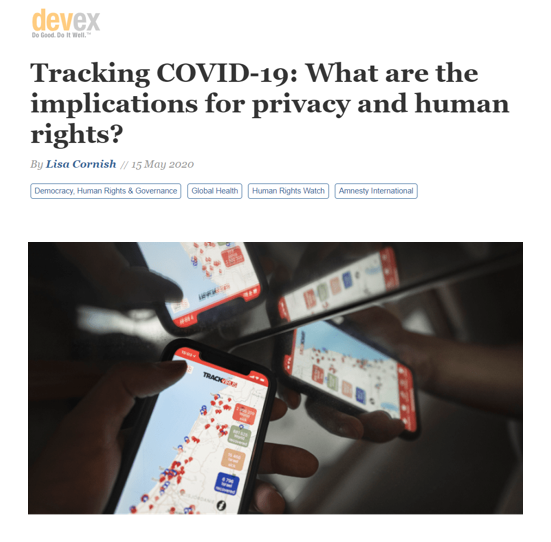During the COVID-19 pandemic, countries have been implementing increased surveillance with the use of geoblocking, heat sensors, heat mapping and location and Bluetooth tracking to prevent the spread of the virus. However, this raises the question: "When will countries go too far and when will these initiatives impede human rights and privacy?"

In many countries, governments have been able to implement potentially human rights infringing policies in the name of safety and public health. This has ranged from media censorship to oversurveillance of individuals and groups. In a conversation with Devex, Dr. Mamello Thinyane, our Principal Research Fellow, highlights two major issues around cyber freedom and digital privacy during COVID-19. He explains how firstly there is an essential “challenge of protecting citizens’ privacy and freedom in the data technologies that are being deployed to fight the pandemic” but also considers that it is crucial to restore “citizen’s privacy and freedom...after the pandemic”. In our collective fight to eradicate COVID-19, it is critical that human rights are not being ignored and that initiatives and policies implemented during the pandemic do not obstruct future progressions.
Read the full article on Devex: https://bit.ly/31zuFKn

